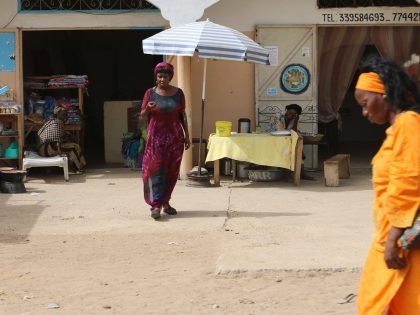Talking back: African feminisms in dialogue
How young, African feminist scholars are using their life experiences as sources and resources for theorizing their feminism.

Girls walking together outside Yomelela Primary School, Khayalitsha, Cape Town, South Africa. Image credit Karin Schermbrucker for UN Women via Flickr CC.
In recent years, various forms of feminist organizing have emerged from the Cape to Cairo. We have seen South African students demonstrate on campuses around the country to resist gender-based violence, and to denounce structures of economic oppression (#FeesMustFall), as well as the coloniality of their curriculum and universities (#RhodesMustFall). We have witnessed Egyptian and Sudanese women and youth taking to the streets to reclaim a fairer and more equitable society, and denounce the violence with which their organizing has been met. In Uganda, scholars such as Stella Nyanzi faced imprisonment because of speaking truth to power (she was recently released). In Kenya and Botswana queer activists are pushing for the decriminalization of same-sex relations. On social media, Francophone African women have used the hashtags #VraieFemmeAfricaine, #Nopiwouma, #BalanceTonSaiSai, or #Doyna to challenge patriarchy, sexism, and gender-based violence.
In the coming weeks, a series of posts on this site called Talking Back: African feminisms in Dialogue will discuss issues that are the daughters of our times. It focuses on the connections and disruptions in African feminist thought and practice. It asks a simple question: How are young feminist scholars using their life experiences as sources and resources for theorizing their feminism? In attempting to answer this question, a deliberate effort is made to reflect on the politics of gender, “belonging,” and knowledge production, since delineating these concepts also requires a focus on the power dynamics at play.



